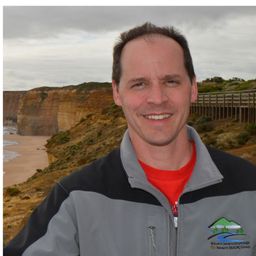
Sessions in which Matthew Bekker participates
Tuesday 28 June, 2022
Wednesday 29 June, 2022
Beaver Island, Michigan was occupied by a religious sect led by James J. Strang from 1848-1856. Strang was crowned king of the group, but assassinated by disgruntled followers in 1856, whereupon local fishermen drove the “Strangites” off the island and reportedly took over or destroyed their buildings. Some of the structures from the Strangite period have known construction dates, while details for others are uncertain. We identified the species and cutting dates for logs in eight structur...
Thursday 30 June, 2022
Sessions in which Matthew Bekker attends
Monday 27 June, 2022
Blue Intensity (BI) is a cost-effective analytical method for measuring relative wood density in the rings of conifer tree species. Since early concept papers in the 1990s/2000s, there has been a recent explosion in the application of this method for both dendroclimatology and historical dating as well as other dendro-disciplines. The beauty of BI is that the analytical costs, mainly related to the cost of a h...
Free, in person and onlineWe will hold a practical, skills-based workshop introducing openDendro -- an open-source framework of the base analytic software tools used in dendrochronology in both the R and Python programming languages. openDendro is a new unified set of tree-ring analysis tools in open-source environments that provides the necessary baseline for dendro...
Tuesday 28 June, 2022
Tree-ring time series provide long-term, annually resolved information on the growth of individual trees. However, public tree-ring archives contain a considerable portion of data collected from trees that have been selected with specific research questions in mind (e.g., for climate reconstruction). This makes these archives a biased representation of the sensitivity of forest ecosystems to ongoing climate variation (e.g. temperature, precipitation), including non-stationarity (i.e....
As of 2020, 56% of the world’s population live in urban areas. These individuals benefit from numerous ecosystem services provided by urban forests, including urban heat island mitigation, energy use reduction, stormwater interception, wildlife and pollinator habitat provision, air pollution removal, and carbon sequestration. Urban greenspaces are also often the most accessible avenue for exposure to the natural environment, providing additional aesthetic, recreati...
Wednesday 29 June, 2022
Information garnered from historical timbers and wooden artifacts (e.g. houses, barns, ships) can greatly enhance our understanding of human, ecological, and climate history, especially in regions where few old-growth forests and trees remain, tree longevity is relatively short (less than 300-400 years), and environmental conditions break down wood rather quickly, like in mesic to wet regions. Over the last decade plus, the application of tree-ring techniques on wo...
Information garnered from historical timbers and wooden artifacts (e.g. houses, barns, ships) can greatly enhance our understanding of human, ecological, and climate history, especially in regions where few old-growth forests and trees remain, tree longevity is relatively short (less than 300-400 years), and environmental conditions break down wood rather quickly, like in mesic to wet regions Over the last decade plus, the application of tree-ring techniques on woo...
Thursday 30 June, 2022
Dendrochronological archives in the tropics of the Americas have been under-studied for a long time. Some of the challenges include the Identification of tree-ring boundaries in certain tree species, absence of winter dormancy associated to low temperatures in most of the cases, and logistic difficulties of fieldwork in remote sites. However, part of the slow progress is also related to the fact that historically much less resources have been inv...
Dendrochronological archives in the tropics of the Americas have been under-studied for a long time. Some of the challenges include the Identification of tree-ring boundaries in certain tree species, absence of winter dormancy associated to low temperatures in most of the cases, and logistic difficulties of fieldwork in remote sites. However, part of the slow progress is also related to the fact that historically much less resources have been inv...